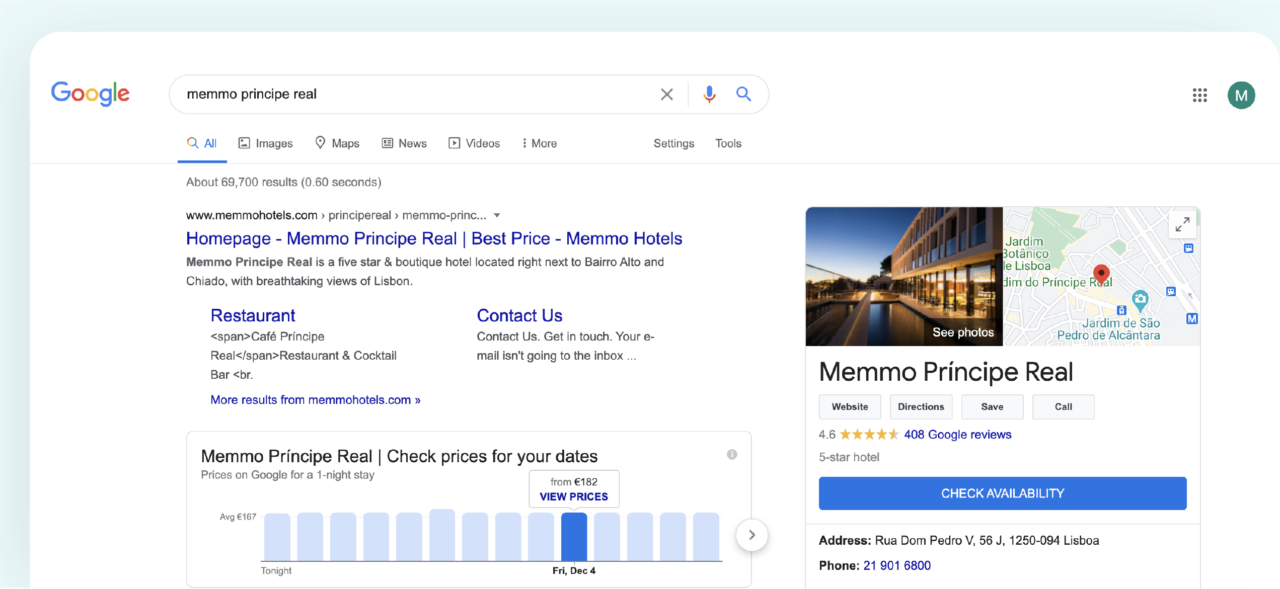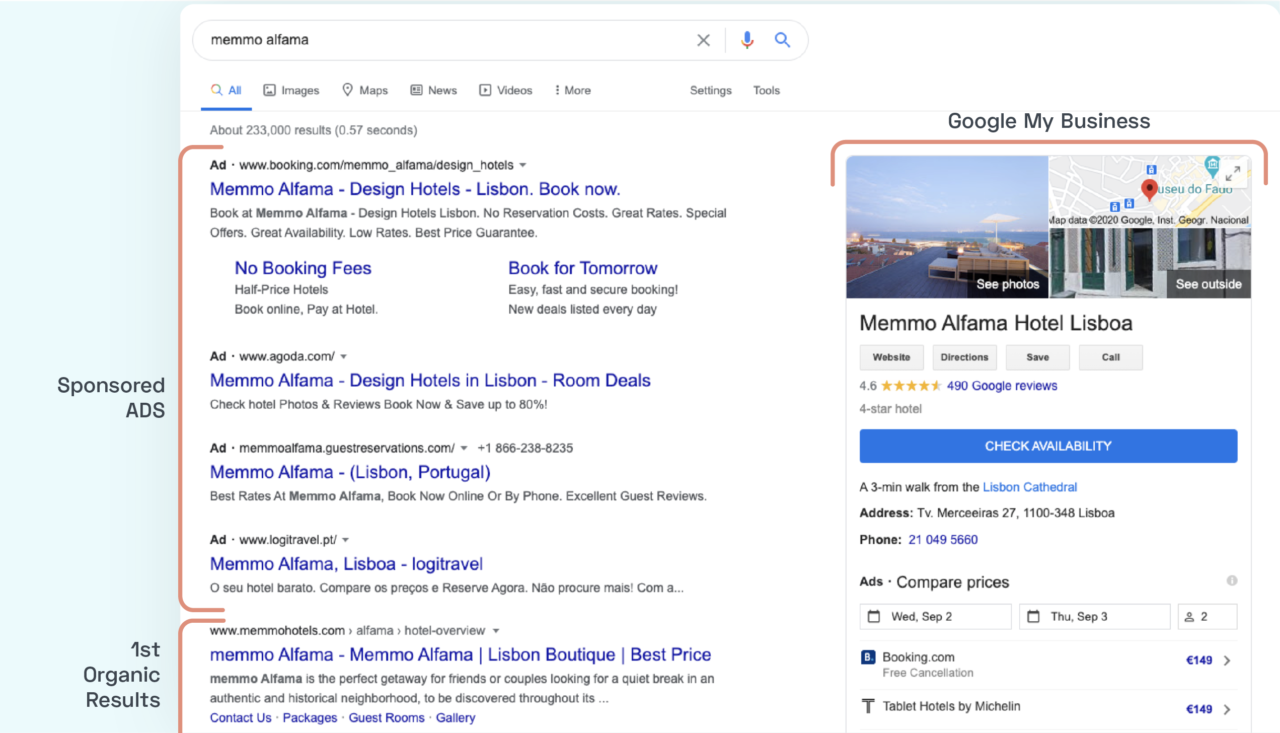
With the rise of Google’s dominance in the online travel search market, Hotel SEO is undoubtedly one of the most widely-discussed loved and hated topics in the industry today.
NB: This is an article from GuestCentric
Yet many Hoteliers still struggle to understand what SEO is, why it’s important for their hotel brand, and what exactly they should be doing to optimize their website for SEO.
Why? Because SEO, in addition to being a highly technical and ever-evolving concept, is often branded as ‘rocket science’.
Subscribe to our weekly newsletter and stay up to date
In this article, we demystify the concept of Hotel SEO and share the top 6 ranking factors your hotel should consider to boost visibility on the search engine.
What is Hotel SEO and is it really Rocket Science?
SEO stands for Search Engine Optimization – defined as the process of optimizing your hotel website according to the search engine criteria to rank better. The objective is to increase your hotel website’s visibility, traffic, and, consequently, reservations.
According to statscounter research published in July 2020, 92,17% of worldwide searches are done using Google search. Given how this search engine is currently the biggest source of traffic, all others (such as Bing, yahoo, etc.) are small potatoes in comparison.
You’re probably wondering, how does Google rank hotel websites then and what should I be doing with mine to ensure it’s in the best shape to compete on the search engine?
A few years ago, it wasn’t too difficult to rank on Google for many SEO experts. These ‘gurus’ were able to manipulate the information on their websites to be favoured by Google’s algorithm, and this is how search engine optimization started! However, Google has since got better, smarter and more efficient when it comes to delivering the right websites for each search.
This is why nowadays is a much more comprehensive and different range of factors. Google uses bots to crawl (i.e. collect information) about your web pages. Then, Google algorithms take into account hundreds of ranking factors, to determine the order that pages should appear in the search results for a given search.
6 Hotel SEO Ranking Factors to Implement now
Interestingly, although there are approximately 200 Google ranking factors, no one, not even Google staff, knows exactly what all the factors are and the level of importance. And with Google making over 3,000 changes to their algorithm each year, it’s more important than ever to ensure your hotel website is error-free.
Need Automatic SEO for your Hotel Website? Click Here.
However there are ranking factors that are proven to guarantee your hotel website organically ranks on page 1 of Google search results for your hotel name. The million dollar question is: what are really the top ranking factors to Google?
Here they are below:
1. A Secure Hotel Website

As quoted on the official Google Webmaster Blog, “Security is a top priority for the search engine”. To ensure that users access secure websites, Google rewards those that use HTTPS with higher rankings in search results.
Hypertext transfer protocol secure (HTTPS) is the secure version of HTTP, which is the primary protocol used to send data between a web browser and a website server. HTTPS is encrypted in order to increase security of data transfer.
This security protocol protects the integrity of your website, which is of major relevance to Google.
2. Crawlability and Structured Data

To make life easier for Google bots that crawl your hotel website for ranking information, it’s important that your hotel website is structured properly. As Google explains: “Crawlers look at web pages and follow links on those pages, much like you would if you were browsing content on the web. They go from link to link and bring data about those webpages back to Google’s servers.”
This means your hotel should have a well coded website, with no broken links and a good structure of internal linking, as well as an XML sitemap.
Broken links are dead ends to Google crawlers, so you must avoid having them at all costs unless you want to see your hotel website penalized. The XML sitemap is also crucial for Google to understand the structure of your website. Like a roadmap, it showcases a list of your different website pages, URLs, and how to reach them.
3. Mobile-friendly Hotel Website

Google’s mobile-first index is now a reality. This means that Google is looking into mobile websites first instead of desktop versions.
Your hotel website should be responsive, adapting to all screen sizes, and offer a very good mobile experience in terms of design, functionality, and speed. Using readable fonts, accessible and user friendly menus, and loading the website in less than 3 seconds are all ingredients to take into account.
4. Make sure you have a Relevant Domain

This is a no brainer, yet still there are properties that opt for original domains. Your main domain should be your brand name, if your hotel is called ‘Hotel Blue’, your main domain should be www.hotelblue.
If you’re questioning whether your domain name should end in .com, .us, .org, .net, .dk or any of the options available, let me tell you that the domain extensions have little to no significance. However, bear in mind that users are most familiar with .com.
5. Google my Business

Google my Business (GMB) is a free service from Google that will help online users find your business. The more established your hotel brand appears online, the more likely it is that Google will increase your search visibility.
More than just a local listing, your free Google My Business Profile lets you manage how your business appears on Google Search and Maps. In other words, it set your business name, address, schedule, fotos and reviews with google
In addition, GMB listing is one of the first things showing on the Search Results Page (SERP), on the top right side. This is why an updated and consistent GMB listing is an important ranking factor.
6. Content is King

The term, “Content is king” originated from an essay Microsoft founder Bill Gates wrote in 1996. 24 years later, this is still true and very very important.
It’s mandatory to have all the important information regarding your hotel on your website – related to your history, location, your rooms, etc.
Google’s search algorithm relies on ‘keywords’ to create matches with search queries. Keywords are words and phrases that online searchers write to find information on a specific topic, and it’s important that you ensure your content matches with these search terms.
Back in the day, SEO valued keywords used multiple times, meaning, repeating same keywords would improve your chances of ranking higher for that search.
However as Google evolves and gets smarter to avoid existent tricks, what’s valuable today is content that is genuinely relevant to the searcher’s intent, helpful, of interest, and that meets the needs of your searchers.
A hotel website that is optimized for search engines “speaks the same language” as its potential visitor base, with keywords for SEO that help connect searchers to your website. You need to think about what people want and what they will search for. For example, if you’re creating a page about your ‘hotel rooms’, you should call it that and not “Dream”, so it’s relevant and matches with a search query for a hotel room.
In Conclusion

If you have these 6 ranking factors covered, you can be sure that your hotel website is going to organically rank first in Google’s SERP when people search for your hotel name.
Organic search still dominates all traffic sources, and it’s the most valuable one – with low acquisition cost and higher conversion rate. Furthermore, research shows over 80% of people search for a hotel website after looking into it in an OTA.
This is why it’s so important for hotels to maintain an organic 1st position on Google’s SERP. To continuously do that, it’s crucial to be on top of the latest trends and updates, since Google’s criteria is always evolving and getting more interesting by the minute.




